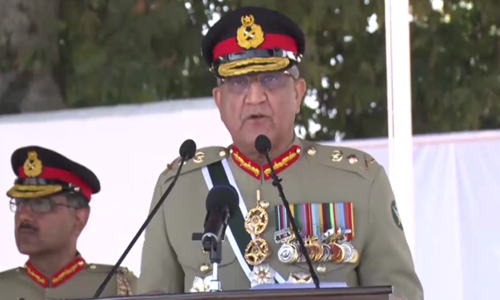WHILE hopes remain that violence in Afghanistan will one day come to an end, specifically if the government, the Afghan Taliban and other major stakeholders reach a peace agreement, civilians in that unfortunate country continue to pay a high price due to the lawlessness.
On Monday, a massacre occurred at Kabul University, in which at least 22 people lost their lives. The militant Islamic State group has claimed responsibility for the atrocity saying two of its fighters carried out the assault, apparently to target an Afghan government ceremony at the varsity.
Late last month, IS carried out a similar massacre, targeting an education centre in a Shia-majority area of Kabul. In that attack, at least 24 lives were snuffed out, many of them young students hoping to build a better future.
While these attacks rightfully attract revulsion, they are par for the course where IS’s deadly strategy and tactics are concerned. After all, they combine the terrorist group’s virulently sectarian outlook and its hatred of modernity, education and all interpretations of religion and politics other than its own.
Moreover, the attacks illustrate the frailty of the Kabul government; the two recent assaults did not take place in some faraway, barely governed province. They took place in the Afghan capital, which is supposed to have a heavy security presence. This shows that unless a solid Afghan peace agreement is hammered out and put into practice, as soon as foreign forces leave the country IS and its ideological comrades may carry out even greater acts of violence.
Along with threatening Afghanistan’s security, a revitalised IS using ungoverned Afghan soil as a base will become a regional and international security nightmare. Pakistan has legitimate security concerns regarding this possible scenario, while as numerous IS-inspired attacks over the last few days in different parts of the world show, if militants find a stronghold in Afghanistan, the frequency and ferocity of these attacks may increase too.
A two-fold response is needed to control IS terrorism within Afghanistan. First and foremost is the need, as stated above, for all Afghan factions that believe in the political process to single-mindedly work for a peace plan agreeable to all. Though the level of violence between the Afghan Taliban and the government has been high over the past couple of weeks, both these players must realise that if IS is given space, it will not hesitate to eliminate all that stands in its way of recreating a ‘caliphate’. Secondly, some Afghan officials have blamed the Afghan Taliban and Pakistan for Monday’s attack. This is strange as IS has unambiguously claimed it was behind the assault. Instead of hurling unsubstantiated allegations, the Afghan government must work with regional states and the international community to eliminate the IS threat. Pointing fingers at others will not make the threat go away.
Published in Dawn, November 4th, 2020















































